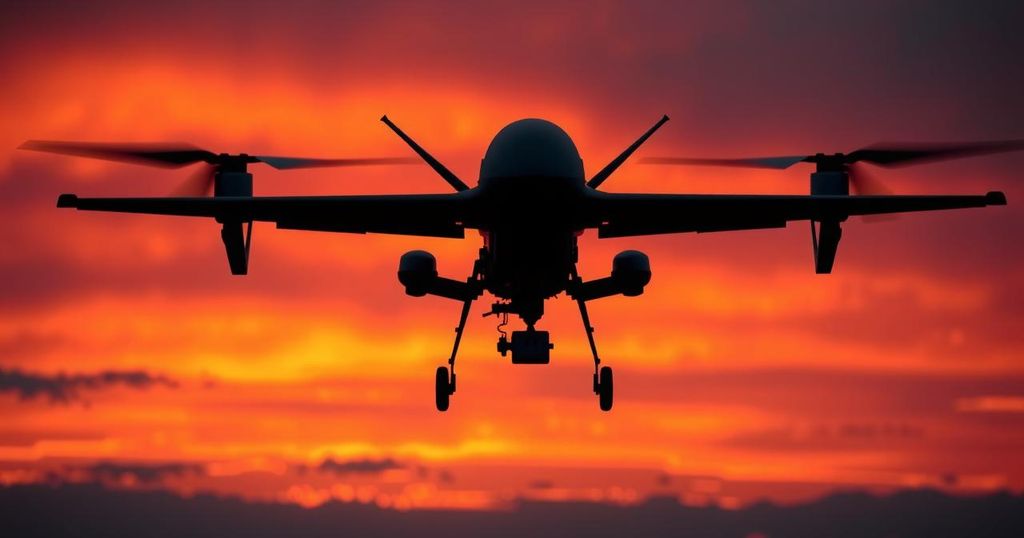Yemeni Army Engages U.S. Drone Amid Heightened Regional Tensions
The Yemeni army downed a U.S. MQ-9 drone amid rising tensions, as Kuwait opts out of facilitating aggression against other states. Trump’s potential engagement in indirect talks with Iran adds complexity, while recent U.S. attacks in Yemen result in civilian casualties. Experts emphasize the absence of a military solution to nuclear issues, urging a clear stance from the IAEA regarding threats to Iran.
Recently, the Yemeni army successfully shot down a U.S. MQ-9 drone, marking a significant operation amid ongoing regional tensions. Following this, multiple reports highlight that Kuwait has decided not to allow its territory to be utilized for any actions targeting other countries. Furthermore, former President Donald Trump is said to be considering Iran’s proposal for indirect negotiations, reflecting the complexities in U.S.-Iran relations.
In another development, a U.S. assault in Yemen resulted in the deaths of four individuals, drawing international scrutiny regarding the conflict. The International Atomic Energy Agency (IAEA) is urged to adopt a definitive position concerning threats directed at Iran, particularly in light of the escalating risks attributed to nuclear issues. Experts caution that pursuing a military approach against Iran might compel the nation to intensify its nuclear weapon development.
In recent confrontations, Yemen launched missile and drone strikes at a U.S. aircraft carrier, raising alarms over the escalating military activities in the region. The rhetoric from Iran underscores its refusal to succumb to U.S. pressures, declaring that there is no military solution to nuclear impasses. Additionally, Russia’s response to U.S. threats against Iran indicates a growing geopolitical divide, suggesting a willingness to support Iran despite American hardline strategies.
Iran has reiterated its commitment to fulfilling its agreements with Iraq, highlighting its ongoing diplomatic priorities amidst external pressures. From an op-ed perspective, the significance of International Quds Day is emphasized, portraying it as a philosophy of existence and a symbol of resistance in the face of oppression. As such, Yemen represents a pivotal location for this struggle against foreign aggression, inspiring discussions about survival amidst modern geopolitical crises, particularly regarding the Kurdish situation in Syria.
The shooting down of the U.S. drone by the Yemeni army exemplifies the rising tensions in the region, further complicated by Kuwait’s stance against aggression and Trump’s considerations for indirect talks with Iran. These developments underscore the need for a definitive strategy from international bodies like the IAEA and reveal the risks associated with military interventions. As Iran asserts its geopolitical strategy amidst pressures, the implications for regional stability and diplomatic relations continue to evolve.
Original Source: en.mehrnews.com




Post Comment